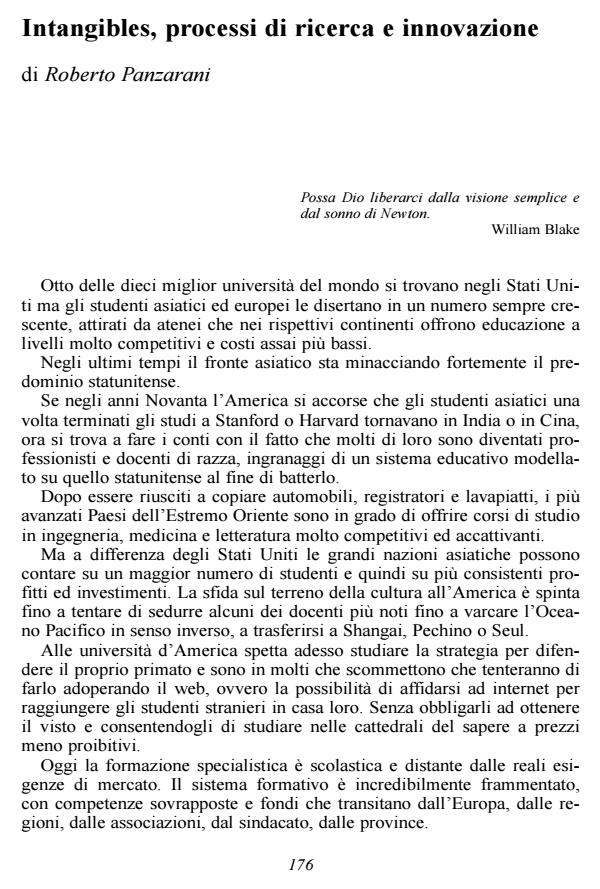Intangibles, processi di ricerca e innovazione
Journal title SOCIOLOGIA DEL LAVORO
Author/s Roberto Panzarani
Publishing Year 2006 Issue 2006/103
Language Italian Pages 6 P. File size 16 KB
DOI
DOI is like a bar code for intellectual property: to have more infomation
click here
Below, you can see the article first page
If you want to buy this article in PDF format, you can do it, following the instructions to buy download credits

FrancoAngeli is member of Publishers International Linking Association, Inc (PILA), a not-for-profit association which run the CrossRef service enabling links to and from online scholarly content.
Intangibles, research and innovation processes Competences and social networks had become the strategic assets to produce value in organization. The moving engine of the modern enterprise is knowledge, which represents the visible advantage. But is on the intangibles assets that firms build a sustainable advantage. It is necessary to start form the triangulation between research, training and innovation. This is a paradigm based on three interdependent areas. During the years that have anticipated the great technological euphoria, also thanks to certain market stability, multinational companies felt the need to engage in advanced training activities, connected with research laboratories and experimentation centres. Today training activities and study curriculum should never be excluded by the innovation value chain. Emotions are intangibles; creativity and ingenuity are intangibles too. These elements were important in the past, but today they are attracting a lot of attention and concern. This concern starts from the new focus on human capital. This last metaphor has its importance in a networked world in which the connection among people, intelligences and brains is the key. Organizational life is characterized by a new and delicate relationship among tangibles and intangibles. The creative relationship between this two dimensions will determine firm capabilities to produce value. Secondly the intangibles weigh will always be greater that the tangibles forcing the passage from the production based economy to a service base economy. For this reasons knowledge investments, research & development, technological innovation have and will have higher returns than those on material assets.
Roberto Panzarani, Intangibles, processi di ricerca e innovazione in "SOCIOLOGIA DEL LAVORO " 103/2006, pp , DOI: